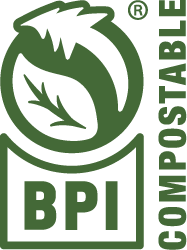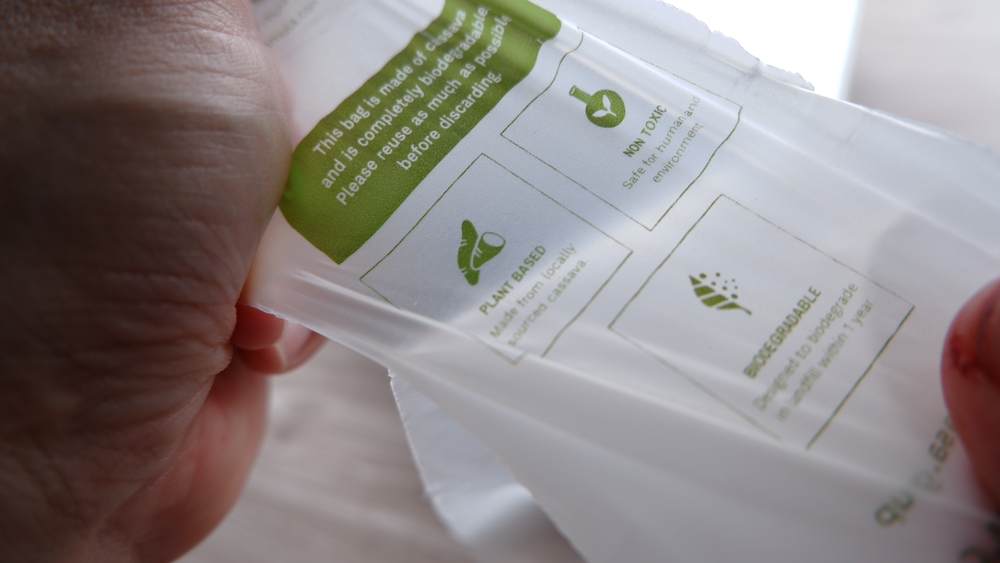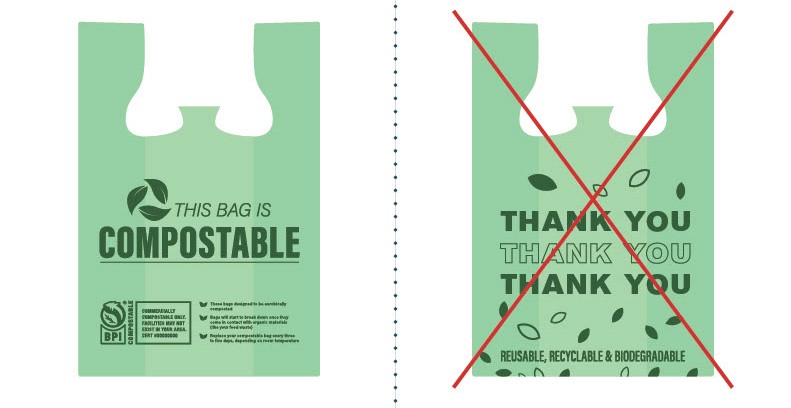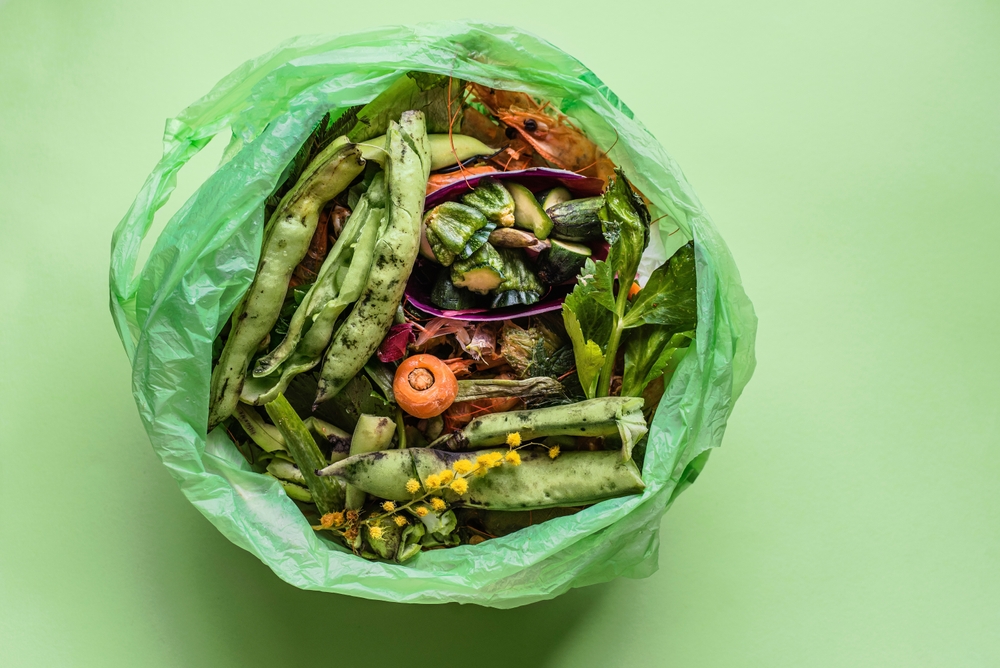If you’re collecting your food scraps at home or work, you’ve probably wondered: What kind of bag should I use in my bin? It’s a great question—and an important one. While it might seem like any “green” bag will do, the truth is that many so-called compostable or biodegradable liners don’t actually break down properly in commercial composting systems like ours.
🌿 Is your bag really compostable?

The most important thing to remember: look for products with specific labeling stating they are certified compostable by a third party, such as the BPI Certified logo. BPI stands for the Biodegradable Products Institute, and they’re the leading authority on compostable product certification in North America. Products with this label have been tested and approved to break down in commercial composting conditions.
If a bag doesn’t have this logo—even if it says “biodegradable,” “plant-based,” or “compost-friendly”—it likely won’t break down properly in our system because the material used is not compostable. And worse, it could contaminate an entire batch of compost.

🚫 Why non-compostable liners are a problem ( This includes Ziploc, bread and carrot bags)

Non-certified liners often:
- Don’t break down, leaving shreds of plastic and other unwanted residue in the finished compost
- Increase contamination, making it harder for us to produce the clean, high-quality compost local gardeners and farmers rely on
In short, the wrong bag can undo a lot of your hard work in separating food scraps—and ours in turning those scraps into beautiful, nutrient-rich soil.
✅ What bags can you use?
When in doubt, keep it simple! Here are our approved options:
- BPI-certified compostable liner bags
- Dry leaves
- Newspaper – a great, low-cost option
- Uncoated, paper bags – especially good for dry food scraps and small bins
Compostable bags can be purchased at most local grocery stores, gardening centers and online. If you shop online, make sure you look for the BPI-certified logo in the product listing. There are a lot of look-a-likes online.
These approved options break down effectively and help us keep the compost stream clean.

🙌 Thanks for helping us keep it clean!
Every little action adds up—and when you choose the right bag, you’re helping protect the quality of our compost, reduce contamination, and support a local, sustainable solution to food waste.
Want more tips on composting right? Visit cswd.net for full composting guidelines.
Together, we’re turning scraps into soil—and we appreciate you doing your part!

